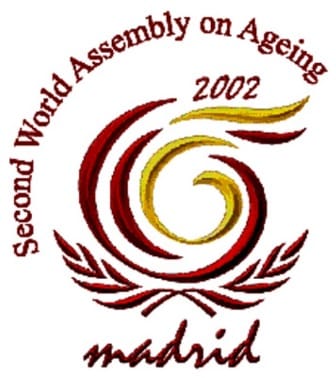
Complementarity of MIPAA and UN-level efforts on older people’s rights
The member States of the United Nations Economic Commission for Europe will come together in September in Lisbon for a ministerial conference to renew the commitments of the MIPAA, which was adopted in 2002. Every five years, member States have declared their attachment to the principles of the MIPAA and defined a Regional Implementation Strategy for Europe. In September, this Strategy will be renewed. Meanwhile, the UN-level Open-Ended Working Group on Ageing has met on a regular basis to analyse gaps in the protection of older people’s rights and to reflect on the necessity of a UN human rights convention on the rights of older persons. For AGE, these two processes should be complementary: while MIPAA is not a human rights instrument and an international legal instrument is necessary to protect older people, the process can help in fulfilling their rights.
AGE thematic recommendations
AGE also addressed a number of recommendations to ministers on the thematic commitments taken five years ago:
- The MIPAA should cover the particular challenges of older people in Europe: adequate income to live in dignity; access to employment and support of life-long learning; social networks to fight loneliness and stimulate social participation; accessible, affordable and quality health and long-term care; access to goods and services regardless of age.
- It should effectively monitor the fulfilment of human rights of older people; build a rights-based implementation approach and follow the recommendation of the UN Expert on the rights of older persons calling for a new binding instrument; continue discussing how the UN Convention on the Rights of Persons with Disabilities applies to older people
- Translate into practice the UNECE call for strategies to meet older migrant’s economic, social and health care needs in light of increasing international mobility
- Promote the MIPAA process to make it more visible, transparent and connected; introduce monitoring and accountability mechanisms; develop common indicators on MIPAA objective and give greater emphasis to social and economic indicators, as well as qualitiative indicators
- Remove barriers to the participation of older people’s organisations in monitoring the implementation of the MIPAA
- Launch campaigns highlighting the values of intergenerational solidarity and to highlight the societal contributions of older people to society
- Promote actions, infrastructures and financial resources to enable older people to be more involved in a wide range of activities
- Challenge stereotypes and age discrimination in the labour market through legislation and the promotion of work force diversity, create specific employment targets for labour market participation of older workers; protect workers of all ages by health and safety rules that include emotional and social risks linked to work; enhance occupational health promotion and prevention
- Recognise the value of informal care giving provided by older workers through acknowledgement of carer’s rights, e.g. through the proposed EU directive on work-life balance for parents nad carers
- Promote flexible pathways into retirement that allow older workers to reduce their working time without losing out on acquired social protection rights; allow workers with disabilities to retire with a disability pension or an equivalent rather than forcing them to stay in the labour market
- Guarantee the adequacy of pensions in the long-term and provide individual pensions that allow for a dignified life in old age, including for those with career breaks for those having family responsibilities
- Invest in child- and long-term care to allow women to contribute adequately to their future pension and reduce the unacceptable gender pension gap of 40%; especially pay attention to the pension adequacy fo the very old and provide for an adequate minimum income in old age to fight poverty and social exclusion by using tools such as reference budgets
- Promote the right to dignity and well-being by developing quality standards for health and long-term care services, such as the European Voluntary Charter of the rights and responsibilities of older people in need of long-term care and assistance.
- Reach out and inform older people in particularly vulnerable situations who are unable to claim their rights.
More information
On the MIPAA
- AGE letter to Ministers of Social Affairs
- AGE General Assembly calls for seizing the full potential of the MIPAA and recommends essential principles to better protect the human rights of older persons
- Ministerial conference on ageing: A sustainable society for all ages: Realising the potential of living longer






